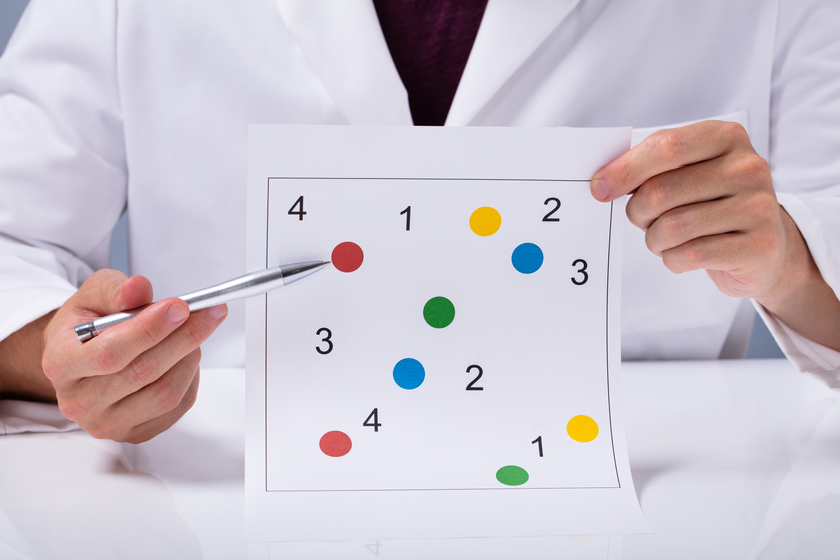Dementia is a complex condition that can significantly impact the lives of seniors and their families. Knowing how to test for dementia in your loved one can help you identify early signs and seek appropriate medical intervention. This guide will provide you with essential information on the signs and symptoms of dementia, self-assessment tools, and when to seek professional help.
Understanding Dementia
Dementia is an umbrella term used to describe various symptoms of cognitive decline, such as memory loss, confusion, and impaired judgment. It is not a specific disease but rather a syndrome associated with different conditions, including Alzheimer’s disease, vascular dementia, and Lewy body dementia. There are also many stages of dementia. Early detection is crucial for managing the symptoms and improving the quality of life for those affected.
Recognizing Early Signs and Symptoms
Identifying the early signs of dementia is the first step in testing for the condition. Here are some common symptoms to look out for:
- Memory Loss: Memory loss, especially short-term memory loss, is often one of the first signs of dementia. Your loved one may forget recent events, conversations, or appointments but still remember events from the past.
- Difficulty Performing Familiar Tasks: Individuals with dementia may struggle with routine activities they once found easy, such as cooking, using household appliances, or managing finances.
- Language Problems: Language difficulties, including trouble finding the right words, repeating phrases, or forgetting common words, can be indicative of dementia.
- Disorientation: People with dementia may become disoriented in familiar places, lose track of time, or have difficulty recognizing once-familiar faces.
- Poor Judgment and Decision Making: Dementia can affect a person’s ability to make sound decisions, leading to poor judgment in social situations, personal hygiene, and financial matters.
- Mood and Personality Changes: Mood swings, depression, and behavioral changes, such as increased irritability or withdrawal from social activities, are common in dementia patients.
Self-Assessment Tools and Tests
If you suspect your loved one may have dementia, several self-assessment tools and tests can help you evaluate their cognitive function. These tools are not a substitute for professional diagnosis but can provide useful insights.
The Mini-Mental State Examination (MMSE)
The MMSE is a widely used test that assesses various cognitive functions, including arithmetic, memory, and orientation. It consists of a series of questions and tasks, with a maximum score of 30 points. A lower score indicates greater cognitive impairment.
The Montreal Cognitive Assessment (MoCA)
The MoCA is another screening tool that evaluates cognitive functions such as attention, memory, language, and spatial skills. It is slightly more comprehensive than the MMSE and can detect milder forms of cognitive impairment.
The Clock Drawing Test
The Clock Drawing Test is a simple yet effective tool for assessing cognitive function. Your loved one will be asked to draw a clock showing a specific time. Difficulty completing this task can indicate cognitive decline.
Seeking Professional Help
While self-assessment tools can provide preliminary insights, a professional evaluation is essential for an accurate diagnosis. Here are the steps to follow:
Schedule a Doctor’s Appointment
Make an appointment with your loved one’s primary care physician. They can conduct an initial evaluation and refer you to a specialist if needed.
Consult a Neurologist or Geriatrician
Specialists such as neurologists or geriatricians have extensive experience diagnosing and managing dementia. They will perform a thorough assessment, including medical history, physical examination, and cognitive tests.
Undergo Comprehensive Testing
To confirm a diagnosis of dementia, your loved one may need to undergo additional tests, such as brain imaging (MRI or CT scans), blood tests, and neuropsychological assessments.
Taking Proactive Steps for Early Detection
Knowing how to test for dementia in your loved one is important for early detection and management. By recognizing the signs and symptoms, using self-assessment tools, and seeking professional help, you can provide the best possible care for your loved one. Early intervention can make a significant difference in the quality of life for individuals with dementia and their families.
At our memory care community, we understand the challenges dementia brings and are here to support you every step of the way. Our SHINE® Memory Care program is designed to provide personalized, compassionate care tailored to the needs of each resident. With specialized training, engaging activities, and a safe, nurturing environment, we help your loved ones maintain their independence, confidence, and well-being. Contact us to learn how we can support you and your family in managing dementia.







